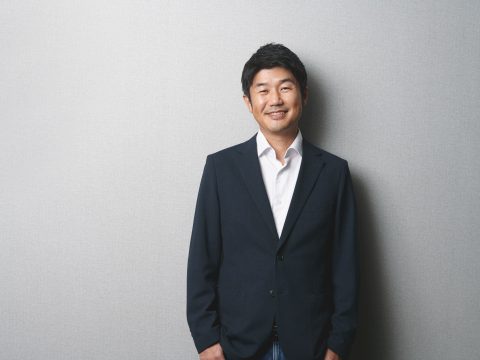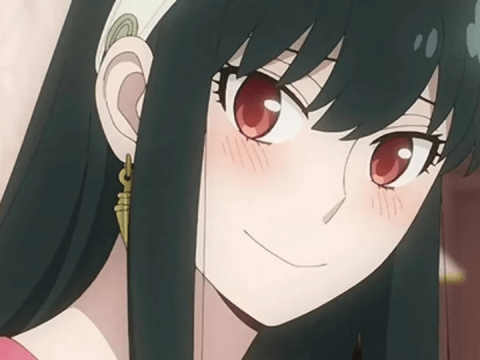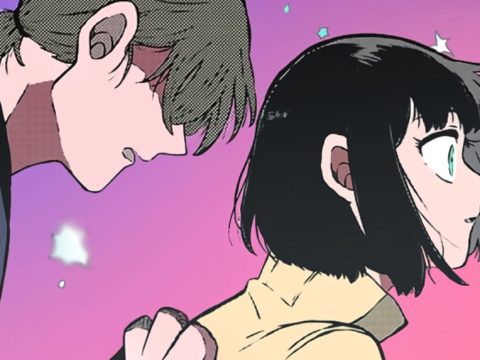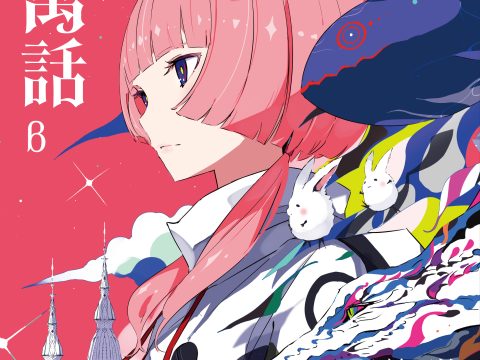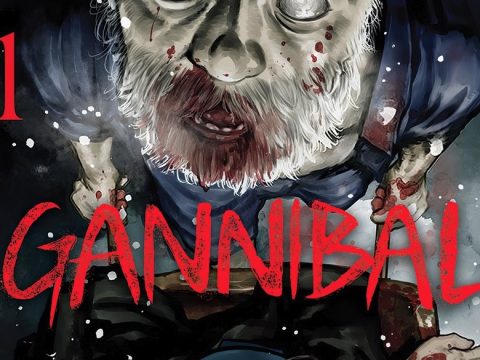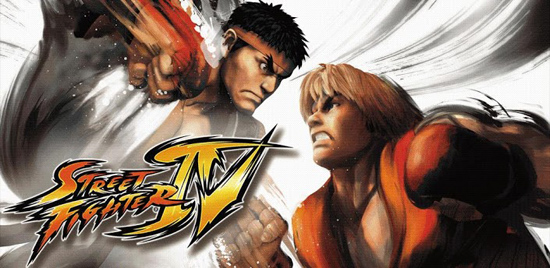
If you enjoyed any of the well-regarded anime dubs from Geneon during the mid-2000s, you likely have Jonathan Klein to thank. As the vice-president and co-owner of New Generation Pictures, Klein produced the dubs for Hellsing, Ergo Proxy and Paranoia Agent during the American anime industry’s boom years early last decade.
Since then, he’s been very prolific in the game industry, producing the English-language versions of Capcom’s Street Fighter series, Marvel vs. Capcom 3 and Street Fighter X Tekken, in addition to handling voice direction on Square Enix titles like Valkyrie Profile 2, Last Remnant and Star Ocean: The Last Hope. In recent years, he’s also done production and voice direction work on Hellsing Ultimate, Bayonetta: Bloody Fate and Ikki Tousen for Funimation.
We had the chance to sit down with Jonathan to talk about the differences between dubbing anime and video games, the special casting challenges of Hellsing, and an anime DVD series that barely sold 10 copies per disc in the US:
OUSA: I don’t know how much you can talk about your ongoing work on Street Fighter V, but how has the process of working on that series changed since you started working on Street Fighter IV? What has your role as English-language producer on the series entailed?
Klein: It kinda evolved, because when we first started on IV we were mostly casting and directing, and my job was to find all the talent. We did auditions, we’d submit it, and then it was just work between Capcom and our director Taliesin Jaffe to make sure everything went smoothly during the actual production process.
As we went into the later iterations of the game (Super, Arcade Edition, etc.) we became more involved with the localization process, where we would translate the script dialogue and storylines along the way. That’s not to say that during the time we did IV we didn’t do some adaptation on the fly. Taliesin and I were very involved with that. Even though we didn’t have any picture to work with, we were trying to match audio as much as possible, and sometimes the lines they translated for us were — while accurate — not close to the characters’ lip flap in-game.
Initially we didn’t budget script adaptation into the schedule, so sometimes we couldn’t always do that extra work, and unfortunately the first version of Street Fighter IV didn’t turn out as well as we hoped, at least as far as lip flap was concerned. The performances were awesome, but there were some issues once we saw how the lip flap looked in-game.
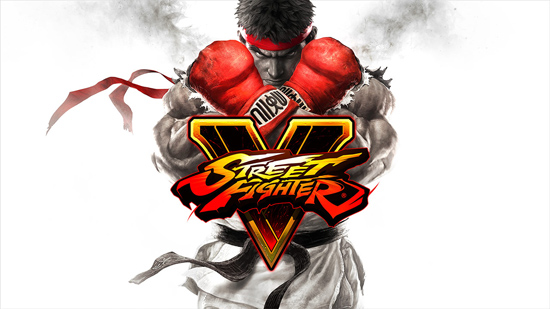
OUSA: I heard from Taliesin in an earlier interview that you weren’t given any video to work with initially.
Klein: Right, and the audio files themselves were often last minute. It progressed to a point after a few years where we could say “look, we’ve been working on this project for a while, we know the characters, we know what’s involved. Give us a chance and let us do some of the internal stuff localization-wise.” When that happened, my business partner and I, along with our localization team, started to work together to translate and edit the scripts. Then Taliesin would go in and adapt the script in the later versions to match lip flap as best he could under the circumstances.
OUSA: This sounds pretty similar to the kind of work you would do on an anime production.
Klein: Yes, exactly, except with a lot more scrutiny by the client. I always like to describe the difference between working on anime and video games like this: with most anime, you have a lot more creative control. I say “most anime” because there are some titles out there where the Japanese producers are very hands-on and they have an idea of how they want to do it.
Video games are always like that. They’re there with you in the recording studio from start to finish. And while you have the director doing their job, the Japanese producer always has the right to override or veto something in regards to the performance. It doesn’t happen often, but it happens.
The good news there is that the responsibility for things falls with the client, since they were there the entire time. So if they say something didn’t work and want changes made, they have to come back to the studio on their dime.
With anime they usually give you the untranslated Japanese scripts and master tapes and say “produce a dub for us.” They’ll usually listen to the voice actors you’re choosing for the main characters during casting and give the yes or no based on that. But they won’t interfere once you’re actually working with the actor one on one, and there’s a much more creative flow there when you don’t have someone staring over your shoulder going “no, we want to do it this way.”
The only issue there is, when the client comes in to listen to the mix, if there’s something they don’t like, you have to finish it on your dime, as opposed to the other way around.
OUSA: When do you have them come back in to listen to the mix? That sounds like it happens pretty close to release.
Klein: We usually provide a tape screening with a mix on there, or they come into the studio and listen to the full mix. Most of the time it’s just them saying “oh, I don’t like the way the actor said this line, do you have another take you can use?” And then we’ll go in and see if we have something else, and if there isn’t we have to call the actor in, do a few pickups.
But again, it’s not usually that excessive. Just a few lines here or there. They’re not asking you to redo the whole thing again. They kinda know that when they’re putting it in your hands you’re going to deliver something that’s fairly close to what they were looking for, especially since they know what the voice cast is going to sound like.
OUSA: Is that kind of freedom something you’ve always had working on anime projects, or is it something you built up to over the past decade and change?
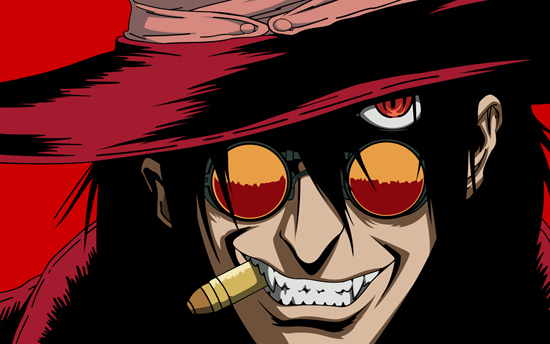
Klein: I think most clients want to sit in with you all the time during the first few projects. I think our first and second dubs we had them in the studio during the recording process, but once we got through the second dub, they kind of realized we knew what we were doing and let us go from there.
For Hellsing we pitched this concept to them where… the show takes place in England, it’s very much a Western horror-influenced kind of show, it shouldn’t feel Japanese or like a typical anime. Not that there’s anything wrong with that style, but there tend to be these overdramatic moments and we really felt we needed to pull back a bit and be more subtle.
We also made a point to get an all-British cast, because while we could get a bunch of American actors in the room to do fake British accents, that wasn’t going to be entirely convincing. We wanted to have truly British actors, or at least as many as we could find, and we figured we could find a decent number in LA. There weren’t a huge number of voice actors to pick from, but part of the fun was taking these established actors and turning them into voice actors. We had to work at that, but it ended up turning out well.
The real challenge was finding the right voices. I always come back to this story about Sir Integra. Basically, we’d find one British actor, who would then refer us to another British actor, and so on and so on. A lot of them were all from the Royal Academy of Dramatic Arts, which is a very prestigious school in England, and they would tell us “oh, I know this guy, we all went to RADA together.”
We found our actor for Alexander Anderson first, and when we were looking for someone to play Integra, we struggled to find a British female voice that had the same kind of gravitas present in the original Japanese. I believe Yoshiko Sakakibara played the character in the original. We wanted it to clearly sound female but have that kind of male intensity that was in there.
We found someone who was close, but not quite. Then one day I’m explaining the situation to this actor we’ve cast for Anderson about how we needed a really powerful female voice, and he tells me “oh, I know just the person!” Later I get this call at the office, pick it up, and hear this incredible performance from Victoria Harwood. She’s been perfect ever since then. I love working with her, always appreciate having the opportunity, which still comes up from time to time.
OUSA: Since you worked on Hellsing for over a decade, did it ever become difficult to track down actors for Hellsing Ultimate years later?
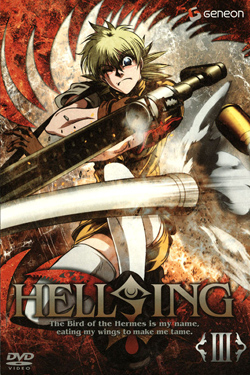
Klein: Oh yeah, absolutely. Ralph Lister, who played Walter, had moved out of state, and by the time we hit episode 5 of Ultimate there’d been a year-long gap and Ralph had pursued other acting opportunities out towards the east coast.
At first we were able to fly him in (his part was pretty meaty and he was happy to do it) but when we hit episode 9 and 10… Episode 10 featured this younger version of Walter. In the Japanese version they used a different voice actor, and while we wanted to have Ralph do both versions, they insisted we use a different actor in the English version, too. Ralph ended up having 2 lines total so we just had him record the lines locally at a studio in his neck of the woods. It was still kind of sad that we couldn’t see him during the last episode, though.
The other thing was that Helena Taylor (who readers may also know as the voice of Bayonetta) played Zorin Blitz in episode 4 of Ultimate. Then a few years pass and she goes to England. It’s one thing when an actor’s just a few hours away, but when you’re in England the cost to bring someone out — especially for anime — gets pretty high.
Ultimately, we couldn’t do it for Hellsing, but when we were doing the voice recording for the Bayonetta anime she’s the main character. I told Funimation that she didn’t want to come out just to record one thing unless you’re willing to pay a lot more… but she wouldn’t object to me going out to England to record there. As it happened, I think I had other business with a client in Europe, so I got Funimation to agree to subsidize half the ticket to go over there. (laughs)
OUSA: You’ve worked on a lot of projects at New Generation Pictures. Is there anything you were really proud of that you wish more people had the chance to see? Anything that maybe didn’t get the recognition you think it deserved?
Klein: There are a few that definitely didn’t get the marketing they needed. For example, there was a show just post-Hellsing called Licensed by Royalty or L/R that was produced in Japan by an anglophile. This guy loved everything about the UK: the Beatles, James Bond, everything.
It was this spy story that took place in a mythical sort of England-equivalent called Ishtar, and they had this conflict with parallel-dimension Ireland and this analogue with the IRA, having to deal with bombing attacks and so on. Ishtar has this agency called Cloud7 which is basically the secret service of the royal family.
What we wanted to do was take this very obviously James Bond-inspired show with references to every spy movie you could imagine — there was even a shoe phone from Get Smart in one episode — and really add that sort of British flair to it. We didn’t just have a British cast this time, we got a British director, too: J.B. Blanc, who’s done a lot of excellent work both on-camera and off. He vocal coached the American actors we had, as well.
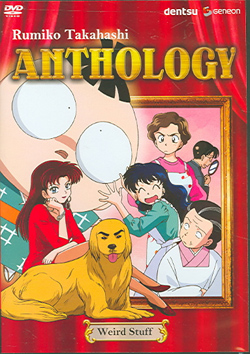
Unfortunately, they just didn’t know how to market the show. They had this brilliant idea in Japan, which was to roll pieces of original art into paper tubes and put them in these little cigarette boxes — there was a smoking motif in the show. But we couldn’t do that in America, so they came up with this trailer that was just godawful. It made no sense. A real shame, because I really think it’s one of those shows that was overlooked.
The other one I’d like to mention is Rumiko Takahashi Anthology. People already know Takahashi’s long-running series like Ranma 1/2, Urusei Yatsura and Inuyasha, but these were more like individual anthology stories.
What we did was something like The Twilight Zone where we had different directors with different voice casts for different stories. Unfortunately, based on the Nielson Vidscan numbers I don’t think the last couple volumes sold more than 10 copies.
I think it was hard to sell people on the series. A lot of the stories were very Japanese and didn’t translate well here to the States, but I thought they were great, great dubs. I had myself, Taliesin, Mike McFarland, Liam O’Brien, Sam Regal, a whole bunch of people work on the different episodes, and they just turned out wonderfully. Definitely check it out if you can.
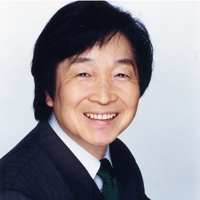
Related Stories:
– Interview: Voice Actor Toshio Furukawa
– Interview: Voice Actress Ai Nonaka
– Tony Oliver Talks Live-Action Robotech and More
– Patrick Seitz: The Space Dandy Interview
– A Chat with Anime Voice Actor Brad Swaile
For more interviews with anime voice actors, directors, animators, and other industry creators, check out our interviews tag page.


